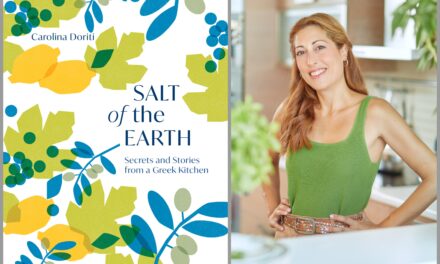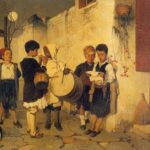Little bookstores constitute an integral part of our culture and our local communities. It’s the place where writers can connect with readers, where we discover new, unknown worlds, where children are captivated by the thrill of reading that can last a lifetime. They are the places that never stop inspiring us, uniting us and spreading the love for books.
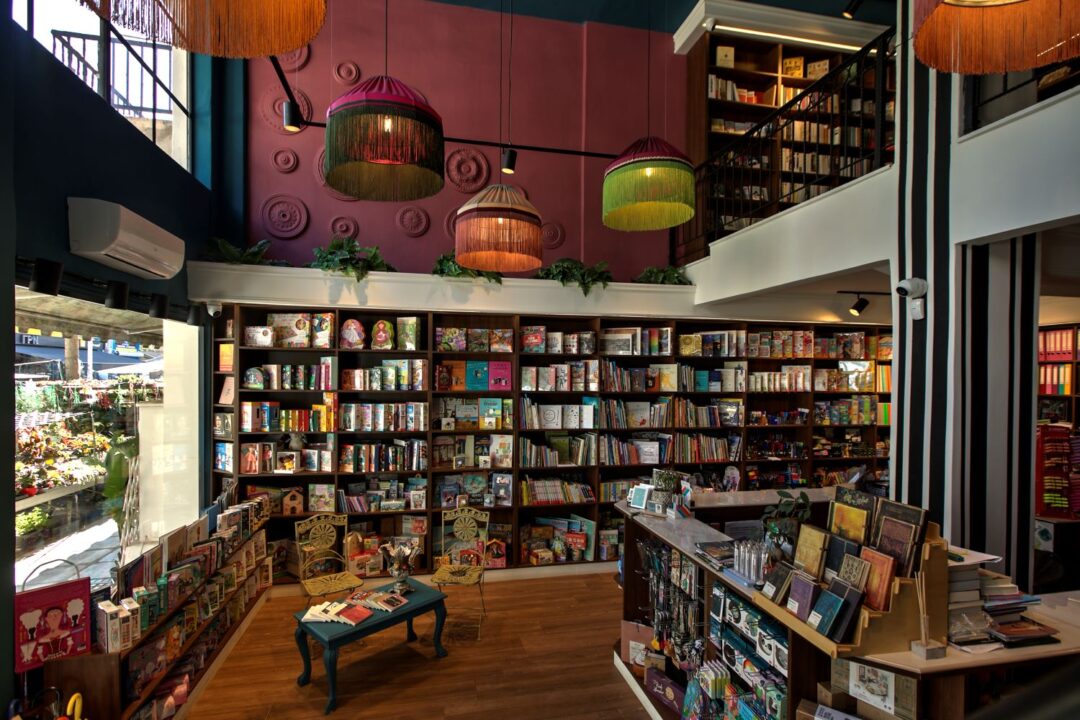
Reading Greece* spoke to Valeria and Elpida Karageorgiou, owners of “Vinieta”, a little bookstore Thessaloniki, about the role of little bookstores and their influence on reading preferences, as well as the challenges they are faced with and the prospects ahead.
Vinieta is a little bookstore in Thessaloniki. What’s the story behind this venture of yours?
Vinieta is a little bookstore in Thessaloniki, created by us, two sisters who, after following different paths, found ourselves living in the same city. What made us to open a bookstore was our shared love for books and the dream of building a space where stories could bring people closer.
We envisioned Vinieta as more than just a bookstore. We wanted to create a warm, intimate space where people could reconnect with the joy of reading, discover carefully selected titles, and feel part of a community. Our shelves reflect our personal taste and values, blending contemporary voices with timeless classics, local authors with international gems.
What kind of books can readers find in your bookstore?
At Vinieta, readers can find a carefully curated selection of books that reflect both our personal tastes and the diverse interests of our community. We focus on contemporary literature, timeless classics, poetry, and thought-provoking non-fiction.
We also have a special section dedicated to children’s books, featuring a mix of well-loved classics and beautifully illustrated new releases. From early readers to stories for older kids, we aim to inspire young imaginations and offer stories that will grow with them.
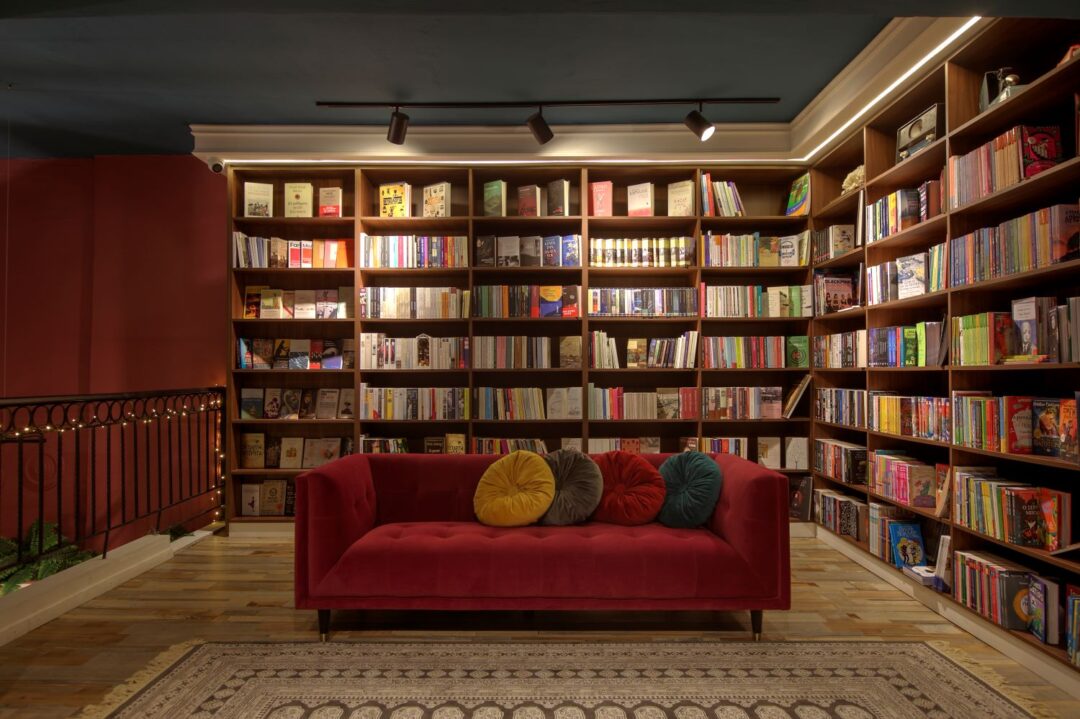
How important is the role of little bookstores? How do they influence reading preferences?
Independent bookstores play a crucial role in promoting reading and building cultural communities. Unlike large chains or online stores that often focus on bestsellers and popular books, small bookstores carefully select the titles they offer, emphasizing emerging authors, small publishers, and more specialized topics. The bookseller in such a store acts almost like a guide, recommending books that readers may not find elsewhere. Additionally, they create a space where readers can connect with each other, attend events, and share their love for books. In a world dominated by digital recommendations and algorithms, small bookstores preserve the magic of personal interaction and discovery.
Which are the main challenges little bookstores face nowadays? How do you respond to these challenges? What about the prospects ahead?
Small bookstores face several challenges today, especially with the rise of online shopping and the increasing shift of people’s attention towards digital platforms, which has led to a decrease in the overall reading audience. The convenience and often lower prices of online retailers pose a significant challenge. Additionally, small bookstores often struggle with limited resources, which makes it harder to compete with the fast-paced nature of book releases and large-scale marketing efforts.
At Vinieta, we respond to these challenges by focusing on the personal touch and the unique experiences that large retailers can’t offer. We build strong relationships with our customers by providing tailored book recommendations, organizing book clubs, and hosting local events that bring people together. This helps us create a sense of community and keeps our customers engaged with the store and the world of literature.
Looking ahead, we are optimistic about the future of small bookstores. While the challenges are real, the growing demand for local, independent businesses and authentic, in-person experiences is a hopeful trend. As people seek deeper connections and a break from the digital world, remains committed to offering a space where literature and community come together, ensuring that we continue to play a valuable role in the literary landscape.
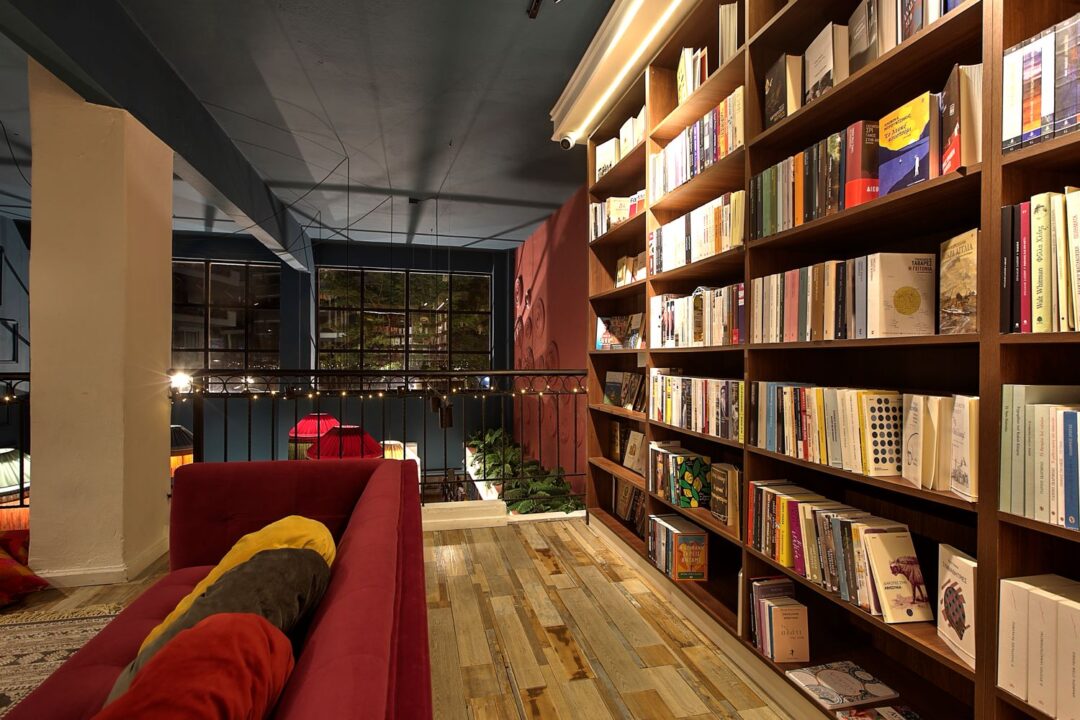
Would you say that the recent socio-economic crisis and the pandemic that followed has broken the ties connecting part of the readers with the choices and orientation of traditional publishers, creating an aesthetic and intellectual space that may certainly grow?
During this period, many people turned to smaller, independent bookstores and explored more niche, diverse, and alternative literature, often looking for more personal and meaningful connections to books and authors. The pandemic and the crisis created a moment of reflection for many, leading readers to seek new perspectives outside the mainstream.
As traditional publishers faced disruptions, smaller publishers, self-publishing platforms, and independent bookstores were able to carve out a space that embraced unique voices, local authors, and books that might not fit within the commercial mainstream.
In the era of online communication, how have the social media influenced what people choose to read? How have reading preferences changed/evolved during the years?
Social media has had a significant impact on reading habits and preferences in recent years. Platforms like Instagram, TikTok (especially BookTok), and Twitter have created new ways for readers to discover books, often through peer recommendations, viral trends, or influencer suggestions. This has shifted part of the influence from traditional critics and publishers to everyday readers and online communities. Books that gain popularity on social media can quickly become bestsellers, even if they come from lesser-known authors or independent publishers.
Over the years, we’ve seen a noticeable shift in what people choose to read. While classics and literary fiction remain important, many readers are now more open to contemporary voices, diverse narratives, and genres they might not have explored before. There’s also a growing interest in books that reflect personal identity, mental health, social issues, or offer escapism.
*Ιnterview by Athina Rossoglou
TAGS: LITERATURE & BOOKS | READING GREECE

